Retro Replay Review
Gameplay
Cradle of Persia builds on the tried-and-true match-three formula, challenging players to align city resource icons—wheat, stone, gems and more—to gather materials. Each match transfers the corresponding tiles to your resource tab, where strategic planning comes into play. Do you prioritize building granaries first to boost your food supply, or invest in workshops to accelerate stone production? The blend of tile matching and resource management feels fresh and rewarding.
(HEY YOU!! We hope you enjoy! We try not to run ads. So basically, this is a very expensive hobby running this site. Please consider joining us for updates, forums, and more. Network w/ us to make some cash or friends while retro gaming, and you can win some free retro games for posting. Okay, carry on 👍)
Levels are not just about collecting resources; each stage hides a marbled background that must be shattered before the timer runs out. This ticking clock adds tension, especially when the board becomes clogged with mismatched tiles. Miss too many moves and you lose a life, which encourages you to think quickly. Special bonuses—like lightning bolts that zap random tiles, or shovels that clear stubborn pieces—offer crucial lifelines during hectic moments.
What sets Cradle of Persia apart is its building phase. Once you’ve amassed enough materials, you can erect iconic Persian structures: from humble mudbrick houses to ornate palaces and ziggurats. Each completed building grants a one-off bonus, such as extra time, score multipliers, or powerful board-clearing abilities. Balancing resource gathering with strategic construction elevates the gameplay loop and keeps each level feeling purposeful.
Graphics
The visual presentation of Cradle of Persia strikes a delightful balance between clarity and charm. Resource tiles are vividly colored and easy to distinguish, ensuring you can make quick decisions without squinting. The intricate Persian motifs etched into the marble layers add historical flair, and watching the stone shatter piece by piece never grows stale.
Backgrounds transition from dusty desert vistas to bustling cityscapes as you progress, providing a satisfying sense of forward momentum. Between levels, you’ll admire freshly constructed buildings rendered in warm earth tones and detailed ornamentation. These cutscenes may be brief, but they reward your efforts with a glimpse of the cradle of civilization coming to life under your guidance.
Animations are smooth and responsive, even when multiple effects—bonus blasts, tile cascades and construction flashes—occur simultaneously. Subtle flourishes like dust puffs when matching stone tiles and sparkles on gem tiles lend polish to what might otherwise be a generic puzzle interface. Overall, the game’s aesthetics feel both approachable for casual players and richly themed for history buffs.
Story
While Cradle of Persia doesn’t unfold a cinematic narrative, it offers a compelling “build-and-progress” storyline that unfolds organically. You begin as a minor governor tasked with revitalizing a remote outpost of the Persian Empire. With each level you conquer, your domain expands—villages sprout, markets open and temples rise toward the sky.
Progress is tracked on an interactive map of ancient Persia, dotted with key cities and caravan routes. When you complete a region, you gain honorary titles and unlock new architectural blueprints that reflect the diversity of Persian culture. The map serves as a light but effective narrative spine, giving context to your puzzle victories and a sense of tangible growth.
Although there are no voiced characters or lengthy cutscenes, the combination of building animations, congratulatory messages and evolving cityscapes tells a satisfying story of empire-building. It’s an understated approach, but one that places the player at the center of Persia’s revival without lengthy expository segments.
Overall Experience
Cradle of Persia delivers a finely tuned puzzle experience with surprising strategic depth. Each session feels accessible—you can jump in for a quick 10-minute match—or dive deep into marathon play as you chase higher building tiers and leaderboard bragging rights. Its balance of urgency (the marble timer) and reward (resource combination) keeps the core loop addictive.
The progression curve is well paced: early levels serve as a gentle tutorial, introducing new resources and bonus items one by one, while later stages ratchet up the challenge with tighter timers and more complex tile layouts. Whether you’re a casual puzzler or a completionist aiming to unlock every building, Cradle of Persia accommodates multiple playstyles.
Combining polished visuals, smooth mechanics and a light narrative framework, Cradle of Persia stands out in a crowded tile-matching market. It’s perfect for anyone who enjoys matching puzzles, historical themes or incremental city builders. If you’re seeking a game that’s easy to learn but hard to master—and that rewards both quick reflexes and strategic foresight—this title deserves a place on your shelf.
 Retro Replay Retro Replay gaming reviews, news, emulation, geek stuff and more!
Retro Replay Retro Replay gaming reviews, news, emulation, geek stuff and more!
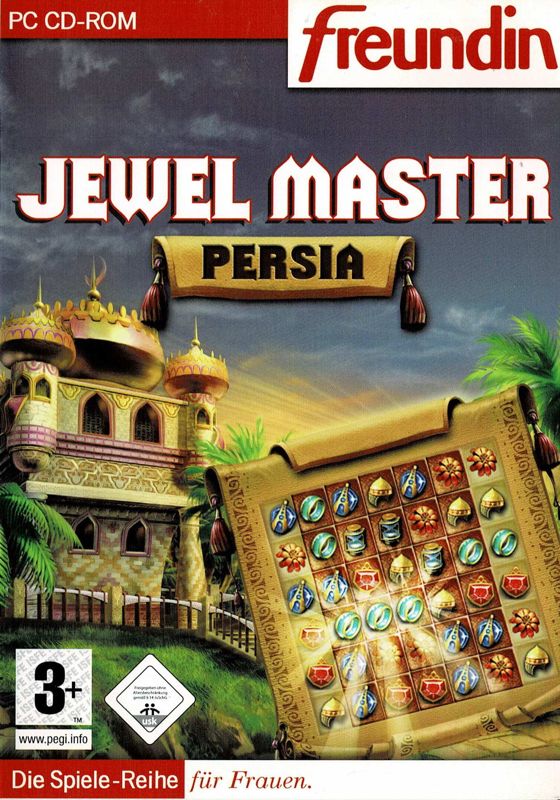

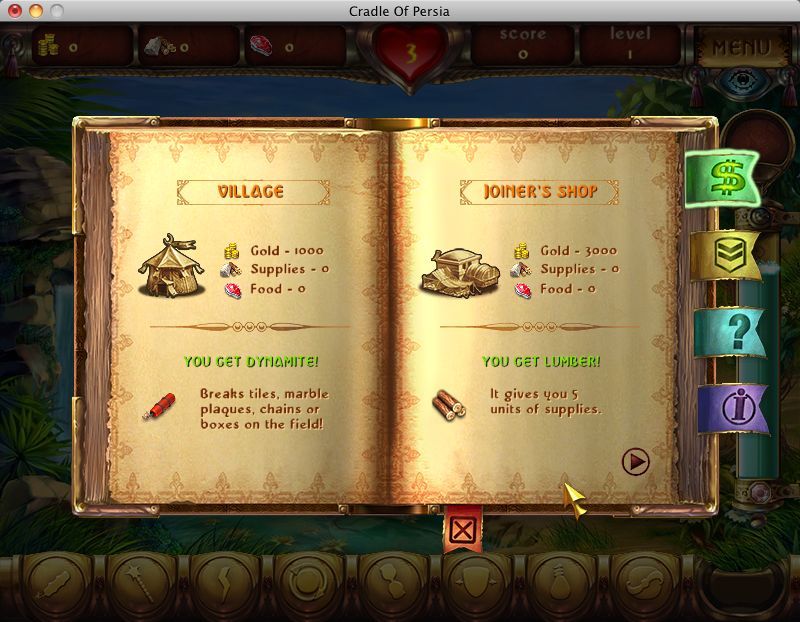
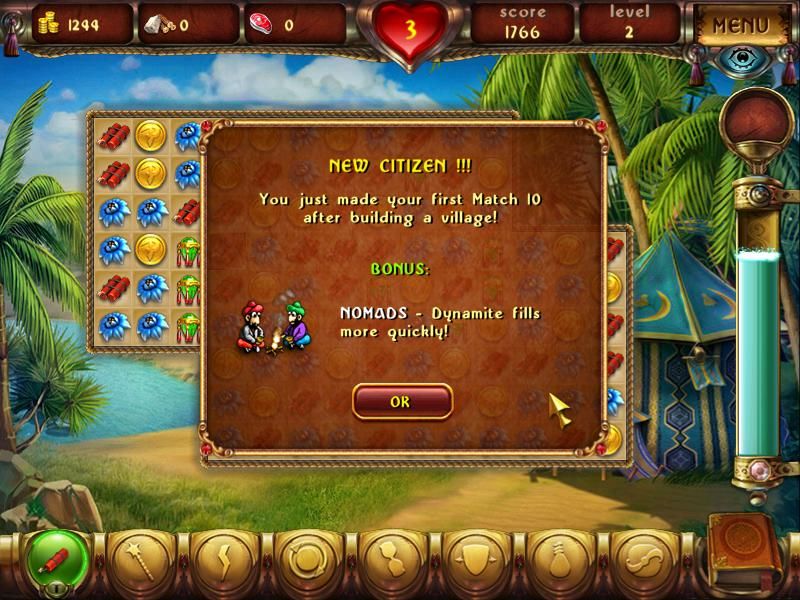
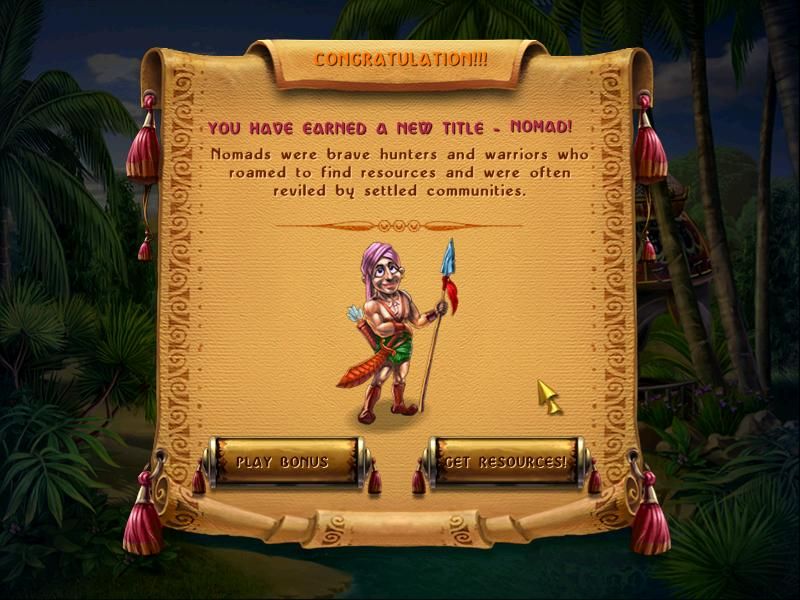
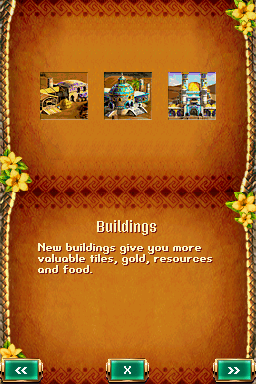



Reviews
There are no reviews yet.